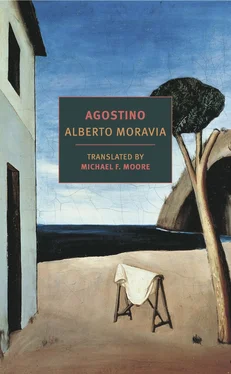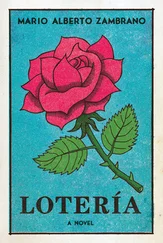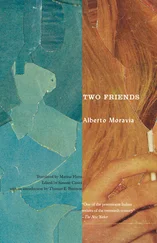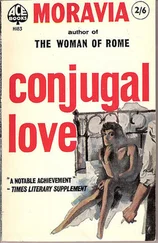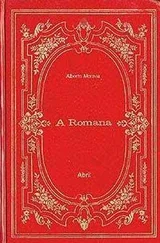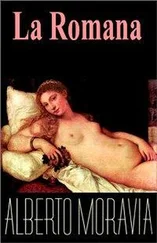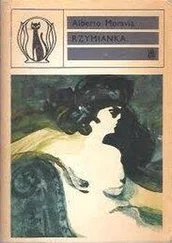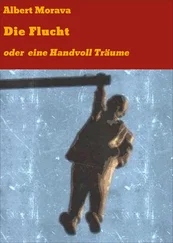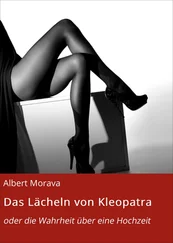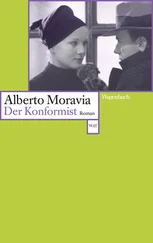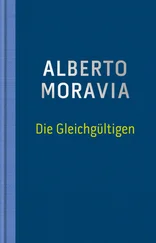“What did I ever do to you?” he said, gasping for air. “I gave you the cigarettes… and you…” His eyes welled up with tears before he could finish the sentence.
“Crybaby,” Berto barked sarcastically. “You want your cigarettes back? I don’t need your cigarettes. Take ’em and go back to your mamma.”
“It doesn’t matter,” Agostino said disconsolately, shaking his head. “ I was just talking… you can keep them.”
“Let’s forget about it,” Berto said. “We’re here.”
Agostino, bringing his burned hand to his mouth, looked up and stared. On this stretch of the shore there was only a handful of cabins, five or six at most, situated far apart from each other. They were shabby, built from rough wood, and between them you could see the beach and sea, both equally deserted. A small group of working-class women were in the shade of a boat pulled ashore, some standing, others lying on the sand, all of them wearing outmoded black bathing suits with long white-trimmed trunks, busy drying themselves and exposing their milky-white limbs to the sun. An arch with a blue sign carried the words, BAGNO AMERIGO VESPUCCI. A low green shack sunken in the sand indicated the lifeguard’s place. Past the Vespucci beach, the coast extended as far as the eye could see, devoid of cabins on the beach or houses along the road, an isolated patch of windbeaten sand between the sparkling blue sea and the dusty green pine grove.
From the road, one side of the shack was concealed by the dunes, which were higher here than elsewhere along the shore. Once the two boys had reached the top of the dunes, they came across a faded, rust-red tarp full of patches and apparently cut from the sail of an old fishing trawler. Two corners of the tarp were tied to poles stuck in the sand while the other two were attached to the shack.
“That’s the den,” Berto said.
Under the tarp a man was sitting at a wobbly table, lighting a cigar. He was surrounded by two or three boys stretched out on the sand. Berto broke into a run and dropped to the man’s feet, shouting, “Den!” Feeling somewhat embarrassed, Agostino approached the group. “And this is Pisa,” Berto said, pointing to Agostino, who was amazed at the nickname given to him so quickly. It had only been five minutes since he told Berto he was born in Pisa.
Agostino lay down on the ground, too. The sand under the tarp was not as clean as on the beach. Watermelon rinds, wood splinters, green pottery shards, and all kinds of debris were strewn together. In places the sand was hard and crusty from buckets of dirty water tossed out of the shack.
Agostino noticed that the boys, four in all, were dressed in clothes that were ragged and torn. Like Berto, they must have been the children of boatmen and lifeguards. “He was at Speranza beach,” Berto said in one breath, still speaking about Agostino. “He says he wants to play cops and robbers with us… but the game is over, isn’t it? I told you the game was over.”
Suddenly there were shouts of “It doesn’t count! It doesn’t count!” Agostino looked and saw running toward them from the sea a group of boys, probably the cops. The first was a boy of about sixteen, short and stocky, in a bathing suit. Then, to Agostino’s great surprise, came a black boy. The third was a blond, and from his bearing and the beauty of his body, Agostino thought he must be of more noble origin than the others. But when he drew near, his torn and threadbare bathing suit and a certain simplicity in his handsome face with its big blue eyes showed plainly that he, too, was poor. The first three boys were followed by four more, all about the same age, between thirteen and fourteen. The stocky one was by far the oldest, and at first impression it was surprising that he would be hanging around with such a young crowd. But his pasty face with its dull, inexpressive features provided, in its brutal stupidity, the reason for this unusual association. He had almost no neck, and his smooth, hairless torso was as wide at the waist and hips as it was at the shoulders. “You hid in a cabin,” he shouted violently at Berto. “Try to deny it. The rules said no cabins.”
“I did not,” Berto replied just as violently. “Tell him, Pisa,” he added, turning to Agostino. “It’s not true that I hid in a cabin. Me and him were behind the corner of the Speranza stand. We saw you going by, didn’t we, Pisa?”
“Actually,” said Agostino, who was incapable of lying, “you were hiding in my cabin.”
“See, I knew it!” the older boy shouted, shaking his fist under Berto’s nose. “I’ll smash your head in, you big liar.”
“Squealer,” Berto shouted in Agostino’s face. “I told you to stay where you were. Go back to your mamma.” He was filled with an uncontainable, animal violence that amazed Agostino in some obscure way. But while he was shouting, one of the cigarette packs fell out of his pocket. He went to pick it up, but the older boy was quicker. Diving to the ground, he grabbed it and shook it in the air triumphantly. “Cigarettes, eh,” he shouted, “cigarettes.”
“Give ’em back,” Berto shouted, throwing himself at him furiously. “They’re mine, Pisa gave them to me, give ’em back or I’ll—”
The other boy took a step back and waited till Berto was within range. Then he stuck the cigarette pack between his teeth and started methodically pounding Berto’s stomach with his fists. Then, tripping him, he sent him sprawling to the ground. “Give ’em back,” Berto shouted again as he squirmed in the sand. But the other boy shouted with a dumb laugh, “He’s got more. Get busy, guys…” and with a unity that shocked Agostino, the boys piled on top of Berto. For a moment there was a tangle of bodies in a cloud of sand at the feet of the man, who continued to smoke while leaning against the table. Finally the blond, who appeared to be the most agile, disentangled himself from the pile, stood up, and waved the second cigarette pack in the air triumphantly. One by one the rest of them stood up. Berto was last. His ugly freckled face was twisted with rage. “You dogs… you thieves,” he shouted, shaking his fist and sobbing. He was crying angry tears, and it had a strange effect on Agostino to see the tables turned on his tormentor and Berto treated just as ruthlessly as Berto had treated him. “You dogs… you dogs,” Berto cried again. The older boy approached and delivered a hard slap to Berto’s face, which made the other boys jump for joy. “Are you ready to cut it out?” Enraged, Berto ran to the corner of the shack and stooped down to grab with both hands a huge rock that he threw at his enemy. The other boy dodged it easily with a derisive whistle. “Pigs!” Berto cried, sobbing, but keeping a cautious distance from behind the corner of the shack. His body was wracked with sobs. The fury was even in his tears, which seemed to release a pent-up bitterness, vulgar and repellent. But his companions had already forgotten him and lain back down on the sand. The older boy opened one pack of cigarettes and the blond opened the other. All of a sudden the man sitting at the table, who had observed the fight without making a move, said, “Hand ’em over.”
Agostino looked at the man. He was big and fat, probably a few years shy of fifty. He had a sly and coldly benevolent face. Bald, with an odd saddle-shaped forehead, small squinting eyes, a red aquiline nose, and flared nostrils covered with purple veins that were disgusting to see. He had a drooping mustache over a slightly crooked mouth that was chomping on a cigar. He was wearing a faded over-shirt and a pair of turquoise cotton trousers, one leg down to his ankle, and the other rolled up to his knee. A black sash was wrapped around his belly. A final detail added to Agostino’s initial disgust. He realized that Saro, as the lifeguard was called, did not have five fingers on each enormous hand but rather six, making them look more like stumpy tentacles than fingers. Agostino studied his hands at length but could not tell whether Saro had two index fingers, two middle fingers, or two ring fingers. They all seemed to be the same length, except the little finger, which protruded from his hand like a thin branch at the base of a knotty tree trunk. Saro took the cigar butt from his mouth and repeated simply, “The cigarettes.”
Читать дальше
